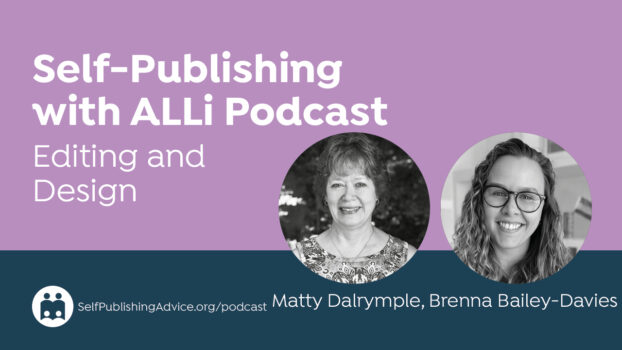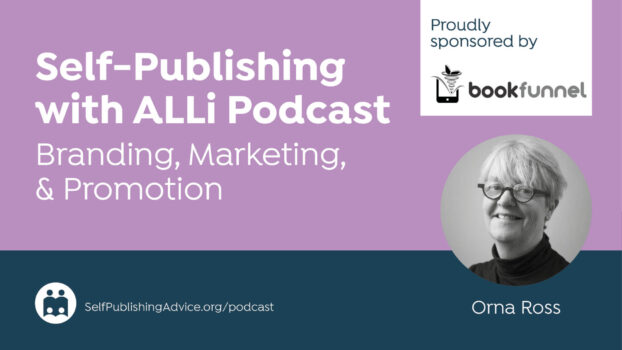Indie authors – how do you keep your momentum going when writing a book? When French novelist Celine Jeanjean, based in Hong Kong, put this question to the hive on ALLi's Facebook forum, a terrific list of suggestions quickly appeared from our members, who are self-published authors from all over the world. See if any of these will work for you – and feel free to add your own top tips via the comments box at the end!
Plan Your Work
- Planning ahead helps prevent writer's block and enables writers to be clear about their book's structure before they start.
- Use an outline so you don't have to face a blank piece of laptop screen without knowing what you're going to write next. Then set a target number of words (set in Scrivener, so you can see the little bar gradually turning green as you write more words.)
- Write a loose plan (or detailed, if you prefer) with brief chapter summaries, so you know how it's going to end.
Or Maybe Not…
- If planning doesn't work for you, don't force yourself to take that route. No need to apologise for pantsing if it works for you – it's just a different style. Whatever works for you is what works for you…
- Pantsers are driven forward by desperation to find out what happens!
The Ticking Clock
- Set a kitchen timer or stopwatch app on your smartphone to fifteen minutes, and write for that length of time. Keep re-setting it for those short bursts of time, which psychologically don't seem too long to commit to. After a few of those bursts, you'll find you can keep going.
- Write a set amount of words every day. If you haven't tried NaNoWriMo yet, their challenge to write 50K words in a month and suggested technique is a complete revelation!
- Set a realistic date for finishing the book and stick to it. Write everyday even if it's only half a page -keep going even if you think it's rubbish – you can go back and change it.
Unintuitive Tip: Read!
- Read every day for a couple hours a wide variety of books. Nothing to get you unstuck like a bestseller where there is no plot or conflict to speak of…
Retreat from the World
- Book a room in a hotel for three nights and make yourself write 10k words a day. Rinse and repeat.
- Find a room looking out to sea, preferably in Cornwall, but not in August!
Set Specific Writing Time – then Use It Wisely
- Prevent real life interfering by ring-fencing a block of writing time when you have no other commitments – then write like fury!
- It doesn't work for everyone, but most writers who are serious about their work find that sitting down at a set time and not getting up until the end of it works for them, whether they manage to put anything on the page or not. It's a habit, and like all habits (both good and bad) it takes a while before it gets embedded.
- Write in two-hour stretches, and don't stop until you're done. Turn off the internet during those two hours. Work two of these shifts a day, turning out between 2,000 and 4,000 words a day, and you'll have a first draft in around 30-50 days.
- Sprint – i.e. write for twenty minutes at a time, over and over and over again.
Commit to a Pre-Order
- Set your planned book up as a pre-order on Amazon. That'll make sure you have to publish by a specific date. (Only for the brave and bold, perhaps!)
The Best Way to Get Something Done is to Do It
- Start each day by writing the first few words of any sentence, and then keep going without stopping – like jumping off a diving board!
- Waiting for your muse is pointless. Your muse is you – give it a kick up the backside and tell it to get going.
- When you don't feel like writing, just write one sentence. That way you can tell yourself you wrote something that day – and it often jump-starts you to write more.
- JDI – Just Do it (there is often an F inserted between the J and the D!
Last word to novelist, non-fiction author and freelance writer John Lynch:
“I wrote a sentence. I sat and stared at it for ages, thinking, “Where on earth did THAT come from?” But 10 months later it was a finished 90,000 word novel — and the first sentence was still there. Every day an adventure.”
With thanks to the following author members of ALLi for their suggestions quoted above:
Jay Artale, Jessica Bell, Mary Crawford, Julie Day, Keith Dixon, Helena Halme, Janet Hartman,Celine Jeanjean, Alexander Kirko, John Lynch, Fenella Miller, Karen Myers, Lynne Pardoe, David Penny, Ann Victoria Roberts, Georgia Rose, Margaret Skea, Jill Treseder
Thanks also to the many more that contributed to the Facebook forum discussion – having access to this terrific forum is one of many great reasons to join ALLi!
OVER TO YOU Like to add some top tips of your own? Feel free to join the conversation via the comments box!
ANOTHER GREAT POST ON THIS TOPIC
#Authors - ever run out of steam while writing? Here's how to keep going! #ww Share on X







[…] How to Keep Your Momentum Going When Writing a Book […]
I finished my 1,500 daily words a few hours ago. Had no idea what development was going to come from my fingers tapping away on the keyboard. Total pantser! 🙂
Good tips, Debbie. I tend to avoid things like deadlines so that I can enjoy writing without feeling pressured. However, I can see how it would work for many people. Setting aside specific time is the answer for me. Some days I accomplish more than others, but I write just about every day.